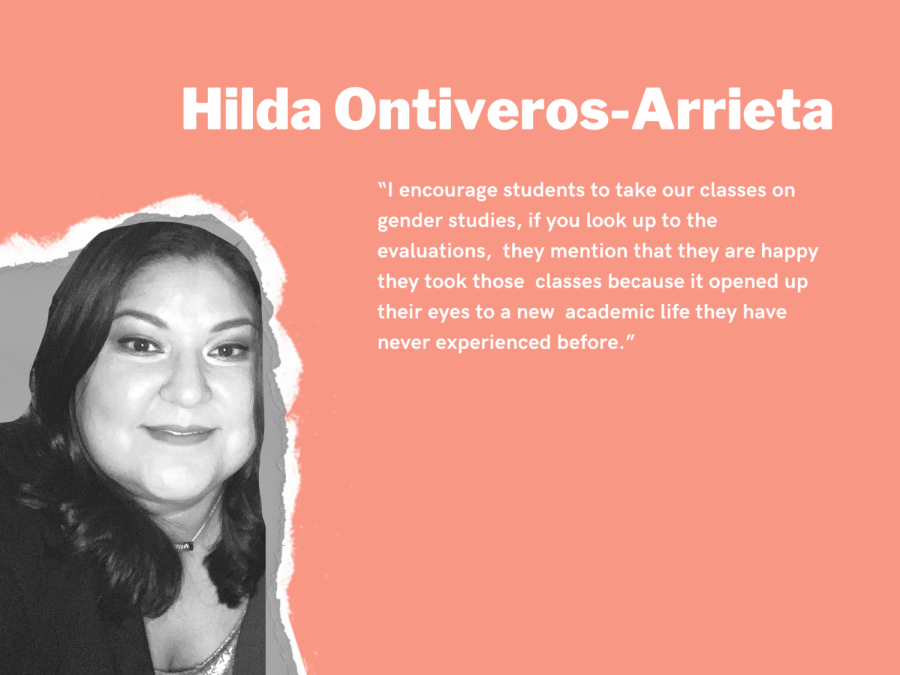In the mid 1990’s, international media started to focus on thousands of homicides happening in Ciudad Juárez, Mexico, mostly pertaining to women of low income with their bodies being found on the Chihuahua Desert. Three decades later, the border continues to be the subject of feminicides and the now growing movement that follows it.
Hilda Ontiveros-Arrieta, is a UTEP professor in the Women’s and Gender Studies Program where she teaches several courses relevant to gender theory and analysis. Her current research interests include curriculum development for Latino students, contemporary feminist issues, masculinities and policy -making and global women’s health issues, among others.
“Since the early 1990’s, there has been a lot of femicides in the Chihuahua Desert, all of them in the north of the Chihuahua region including Ciudad Juárez,” Hilda Ontiveros-Arrieta said. “In Mexico right now, the number is about 11 per day.”
In 2020, Juárez had more feminicides than any other city in Mexico. According to data released on Jan. 27 by the Secretary Executive of the National System of Public Security, in the past year 3,723 women were victims of feminicides and homicide, with 940 and 2,783 deaths respectively.
According to the Gender Equality Observatory for Latin America and the Caribbean, the term feminicide corresponds to the aggravated homicide due to gender. In other words, it is the intentional killing of women or girls because they are female, which could be in the form of domestic violence, or sexual aggression.
“Being a student in UTEP and living in Juárez has giving me the opportunity to know and feel how my life would be if Juárez was a safe city like El Paso. But also, it opened my eyes that there are a lot of women who are being killed, kidnapped and I can do something about it,” said Carla Montoya, an industrial engineering student at UTEP, who is part of the collective movement in Juárez called Hijas de su Maquilera Madre.
The organization is independent, anti-capitalist, and against feminicide, forced disappearance and human trafficking. It is organized under democratic horizontal assemblies where everyone has voice and vote. In the past, the collective has defended the political struggle for women’s rights, sex-affective diversity, ecofeminism, gender equality and equity, publicly denounced feminicide, and the forced disappearance of women.
According to Ontiveros-Arrieta, the start of the pandemic has created a recoil in the fight for women’s rights, as women staying home become victims of domestic violence.
“As we are in lockdown with our intimate partners or spouses and families, there tends to be a raise in domestic violence and violence against women and right now it’s happening in Mexico,” Ontiveros-Arrieta said. “The thing is, 90% of those cases are dismissed, they are not followed trough, and nothing comes up from them.
Ontiveros-Arrieta said being part of an organization like Hijas de su Maquilera Madre is not the only way in which one can help women experiencing violence in the borderland. Contributing and supporting women shelters in El Paso and Juárez is one thing Ontiveros-Arrieta has encouraged among her students, who donate time, money and supplies.
Ontiveros-Arrieta also encourages students to not listen to stereotypes because they are just there to scare people away for doing activism.
“I encourage students to take our classes on gender studies, if you look up to the evaluations, they mention that they are happy they took those classes because it opened up their eyes to a new academic life they have never experienced before,” Ontiveros-Arrieta said.
Montoya agreed with Ontiveros-Arrieta, by also encouraging fellow students to speak up when they see injustice being done.
“If you know a friend who is being abused psychologically by her partner, or if some of your friends have a low self-esteem, this is someone who can be vulnerable for this type of violence,” Montoya said. “A way in which you as a man or as a woman who is not in an organization can help, is by raising your voice in the little things on the daily life.”
Maria Salette Ontiveros may be reached at prospector@utep.edu; @salette2098 on Twitter.












